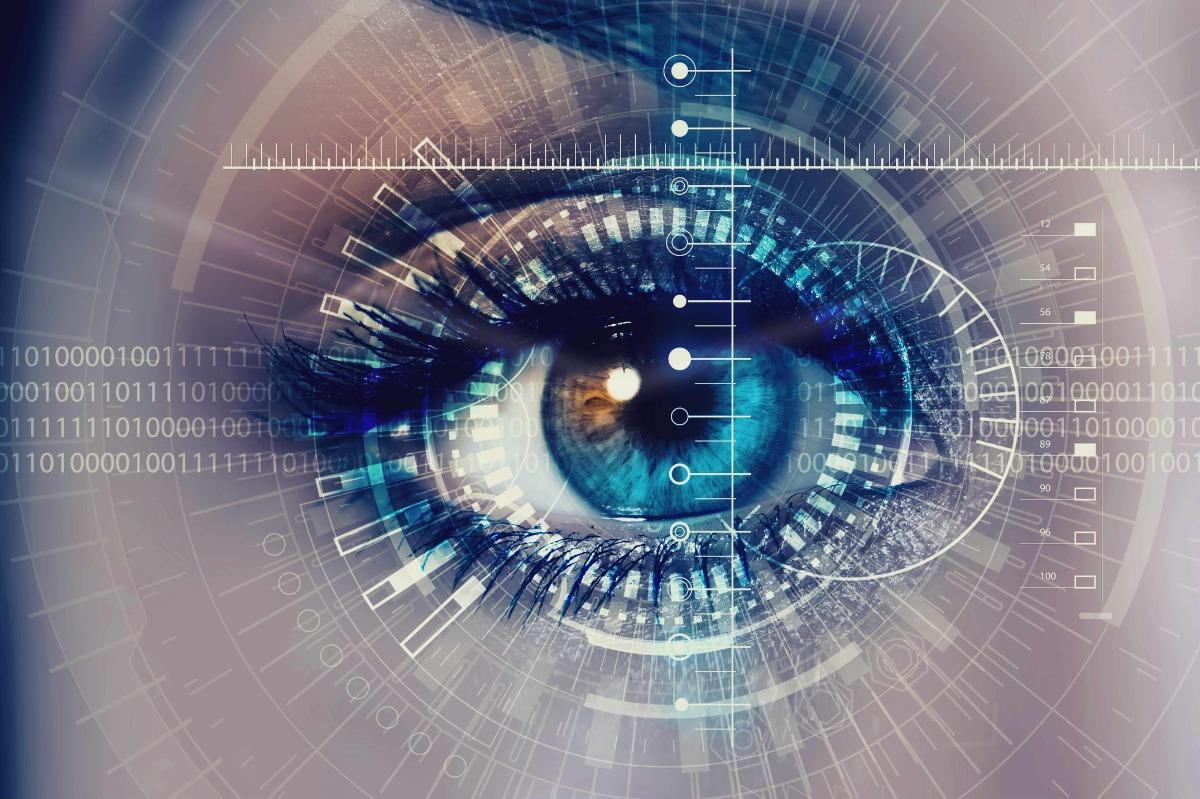
- posted: Feb. 21, 2023
Most of us feel like we couldn’t survive without our smartphones, but let’s not forget that there was a time when we did! The first iPhone was only released back in 2007 and the first iPad was launched in 2010. That’s not the too distant past, but smartphones and tablets have permeated our daily lives. Not to mention that personal computers, TVs and video games are all over the place too. In fact, the average American has three digital devices in their possession and spends 11 hours a day using digital media!
It raises an obvious question: how do these devices affect our eyes? There is a lot of research being done currently and the answer seems to be that not only are our eyes affected, but the use of these devices can impact our overall health.
Digital devices, as well as fluorescent, LED, and halogen bulbs, all emit high-energy blue light. This is part of the visible light spectrum, but is right next to UV light on the electromagnetic spectrum.
It’s common knowledge that UV light is harmful. Our cornea and lens absorb almost all UV light, so it never reaches the retina at the back of the eye. However, blue light is not absorbed by the cornea or lens and therefore reaches the retina where it scatters, causing glare and eyestrain, as well as causing damage to the retinal tissue. With age, a substance called ocular lens pigment does increase in our eyes, which absorbs blue light, but this happens gradually over time, and does not reach a significant amount until well over age 40. The downside to the increase in this pigment is that it is also related to cataract development. So right when we get a natural defense to blue light, it’s usually time to remove the cataract surgically, which takes us back to square one…a catch 22!
In the past, before this boom in digital technology, we were really only exposed to blue light outdoors. Now most people are exposed to it throughout the day (and night) via digital devices and energy efficient lighting. This has a significant impact on our circadian clock or “sleep-wake” cycle. Blue light basically tells our brains that it is light outside. So digital devices basically trick our brains into thinking it’s daylight even when it’s time to go to bed. Exposure to blue light suppresses melatonin, the chemical in our brains that helps us go to sleep and get a good night’s sleep. Therefore, constant exposure to blue light disrupts our sleep patterns, and having our sleep disrupted chronically is linked to higher rates of diabetes, high blood pressure, obesity, cancer, as well as decreased productivity at work and school.
Those are some really big implications! So what can we do to reduce the impact of these devices on our health?
Historically, eye care professionals have prescribed anti-reflective coatings or treatments to help with glare and eyestrain related to digital device use and driving at night. These coatings do help deflect some blue light, but still allow 80% or more of blue light to reach the back of our eyes.
BluBlocker lenses were introduced in the late 1980’s and were very popular, but these lenses (as the name suggests) block all blue light, which causes color distortion.
Now available is a brand new technology called BluTech, which is designed specifically for our digital lifestyle. These lenses filter, not block, the lowest wavelength / highest energy blue light completely, while allowing some lower-energy blue light into our eyes. This protects our eyes from the most harmful types of blue light, while allowing us to see colors without any distortion or change. By blocking this light, glare is reduced and contrast is improved, creating a more relaxing, more comfortable and clearer view.
At Broadway Eye Clinic, we now have the ability to offer BluTech lenses to our patients. BluTech lenses are beneficial for the majority of our patients, but we especially recommend this technology for kids and patients that have had cataract surgery (little to no ocular lens pigment), patients with a history or diagnosis of macular degeneration (retina at higher risk of damage), and professional drivers and patients that work night or graveyard shifts (greater interference with Circadian clock).
Visit this link https://vimeo.com/123312973 to learn more about BlueTech lenses and schedule an appointment with our office to get a prescription for these innovative lenses.
Locations
250 E 300 S SUITE 380
Salt Lake City, UT 84111, US
Hours of Operation
8:00 am - 6:00 pm
8:00 am - 6:30 pm
8:00 am - 6:00 pm
8:00 am - 12:45 pm
1:45 pm - 6:30 pm
8:00 am - 6:00 pm
By Appointment
Closed

